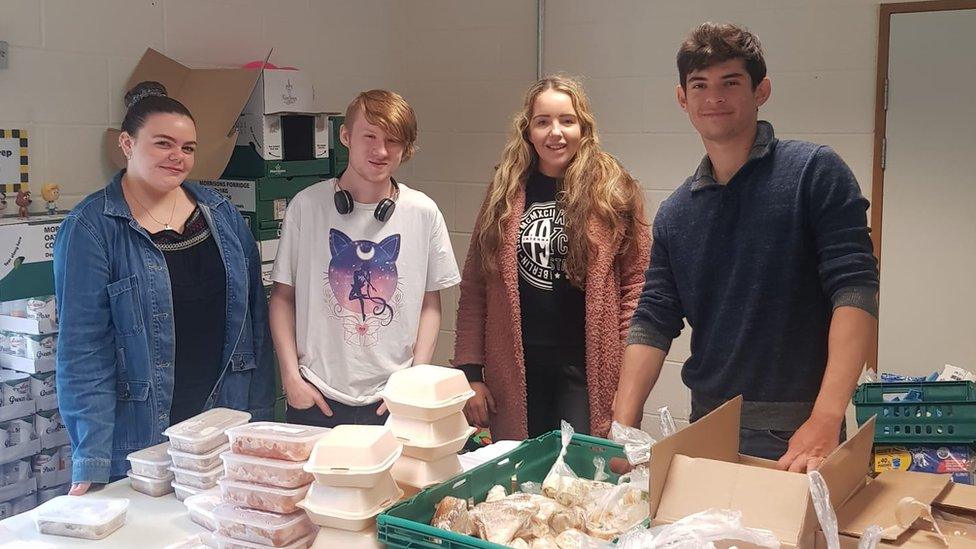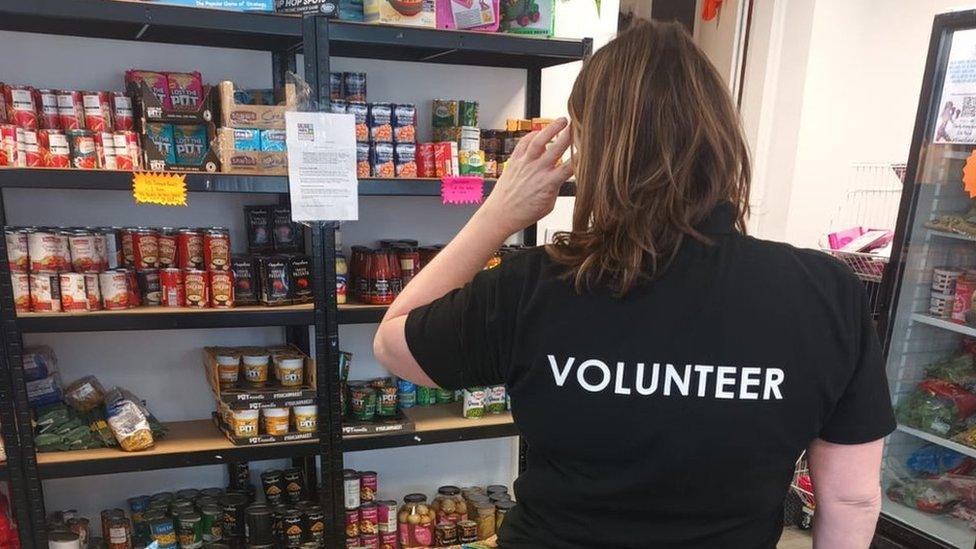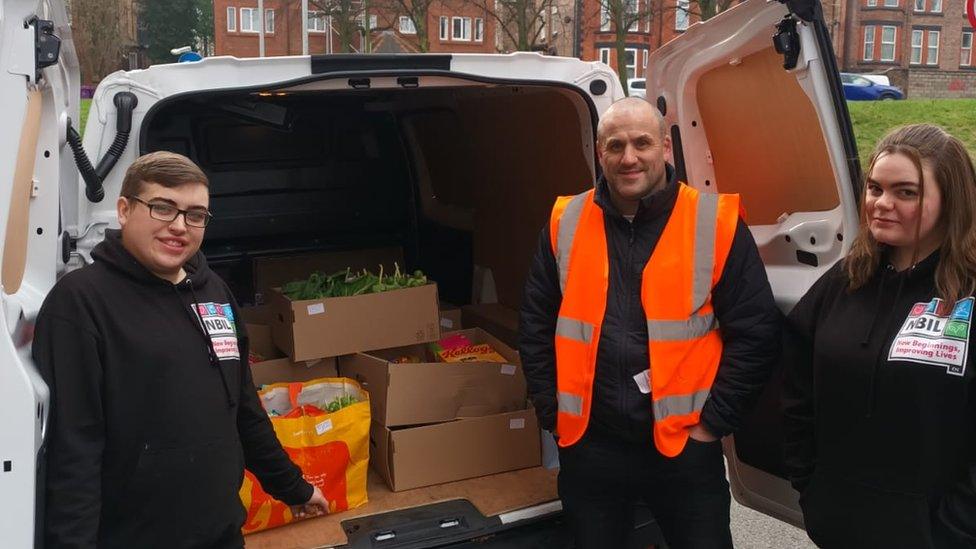Liverpool food bank struggling to keep up with rising demand
- Published

Volunteers delivered to about 300 people during lockdown before the service became a food bank
The founder of a Liverpool food bank said its "shelves are empty" because of soaring demand and the rising cost of living leading to reduced donations.
New Beginnings, Improving Lives in Anfield said a recent upsurge in demand meant the service was now "struggling".
"We don't have anything left; just tins of peas and chickpeas. Our policy is to have full parcels - we just don't have the donations," said Michelle Roach.
The government said it was "doing what it can" to help the hardest hit.
The food delivery service was originally set up as a 12-week project during the first coronavirus lockdown in 2020.
It was designed to help people who could not leave their homes.

The food bank says donations have fallen due to the rising cost of living
A team of volunteers prepared and delivered meals and other household essentials to about 300 people.
Demand for the service's support continued though, and it has evolved into a food bank.
"During lockdown we had no struggle at all [for donations], but there has been a huge drop in food and financial donations and we are really feeling it," founder Ms Roach said.
"It's not just us, we've talked to other food banks and they are feeling the pinch as well.
"We are in a quite deprived area. We are getting lots of walk-ins because we are there in the community which has lots of hostels and HMOs [Houses in Multiple Occupation]. We are inundated."

The food bank delivers weekly food parcels
Ms Roach said she was now seeing people from a wider range of backgrounds asking for help.
"People can judge, but it isn't until you talk to people and find out what their circumstances are that you understand.
"I went out to a really nice house and after speaking to the man I found out he was about to be evicted.
"We are seeing a lot more people from different backgrounds now.
"We also run mental health groups so we are picking up a lot of people who have mental health issues relating to depravation and poverty."
Ms Roach said the food bank "shouldn't be relying on public donations", adding: "The government should be helping more and paying into it. We are struggling."
A Department of Work and Pensions spokesman said £22bn was being spent across the next financial year to support people with energy bills and cut fuel duty.
"Our Household Support Fund is there to help with the cost of everyday essentials and distributed via local authorities, who have the ties and local knowledge to best determine how this support should be provided to their local communities," he said.
"They have the discretion to design their own local schemes, including how and when they spend their funding, including through the use of third parties such as charities."

Why not follow BBC North West on Facebook, external, Twitter, external and Instagram, external? You can also send story ideas to northwest.newsonline@bbc.co.uk, external